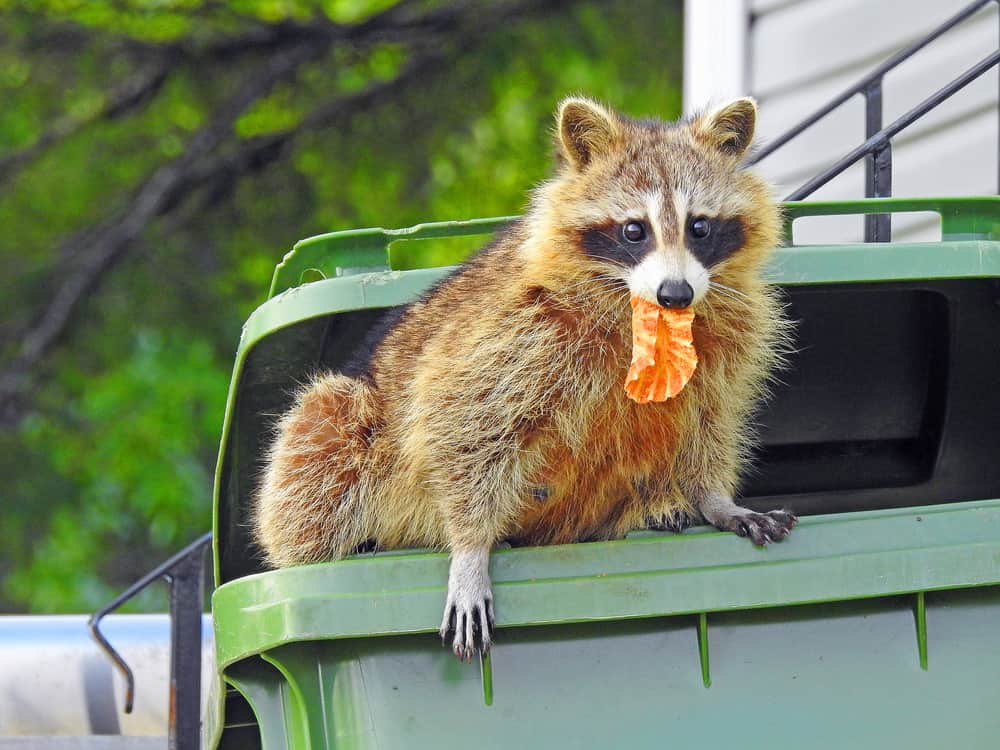
Most people recognize a raccoon by its mask of black fur that covers its eyes. These animals are highly intelligent and curious creatures that are extremely adaptable. In addition to being found in the wild, they also make themselves at home in suburban and urban areas.
Raccoons often make their dens in attics, sewers, barns and sheds. In urban areas, they typically search for food within a range of only about one square mile of their den. This is called their "home range."
RACCOON FACTS
In the wild, a raccoon can live for two to four years. They are good swimmers and are also pretty expressive, communicating with a variety of sounds. Their vocalizations can include hissing, whistling, screaming, growling and snarling.
Raccoons are nocturnal and are most active in spring, summer and fall. Even though they do not hibernate, they can sleep in their den for several weeks at a time during cold weather. The animals have five very dexterous toes on their front paws that can open doors, jars and latches, as well as grasp and manipulate food they find in the wild.
The females, or “sows” as they are called, can reproduce as early as one year old. However, male raccoons, or “boars,” wait until they are two years old to mate. After mating, females will give birth to four to six kits (young) after carrying for about 60 days.
WHAT DO RACCOONS EAT?
Raccoons are omnivores, which means that they will eat a variety of different foods from meats to plants. They are very opportunistic and will often go through trash cans to dine on tasty leftovers. When not going through the trash, they eat an array of fruits and vegetables including cherries, apples, acorns, peaches, citrus fruits, wild grapes, figs, watermelons, corn and walnuts. Raccoons may also feed on animals like fish and snakes.
PROBLEMS ASSOCIATED WITH RACCOONS
While raccoons often live in close proximity to people in both urban and suburban environments, even making dens in homes and sheds, they can be vicious when approached by humans. They will likely spit, howl, hiss or growl when they feel threatened. And, as a last resort, they may attack, but they would rather retreat if at all possible. Raccoons can be carriers for the rabies virus, among other diseases.
There are other ways that raccoons can be a nuisance. They can cause damage to your property by tipping over trash cans, raiding bird feeders, digging up gardens, damaging crops, tearing up shingles and even uncapping chimneys. Raccoons have also been known to take up residence in attics and other parts of the home.
HOW TO HELP KEEP RACCOONS AWAY
There are some steps that you can take to help make your home less attractive to raccoons, including:
- Keeping your trash can lids tightly secured, as raccoons are opportunistic feeders who may consistently visit your garbage should it be a source of food for them.
- Removing fallen fruit and nuts from your yard, as raccoons can be attracted to them.
- Inspecting your home for any potential raccoon access points and properly seal them as soon as possible.
If you have a raccoon problem in or around your home, you shouldn't try to handle it on your own. Instead, contact the wildlife control professionals at Terminix®.




